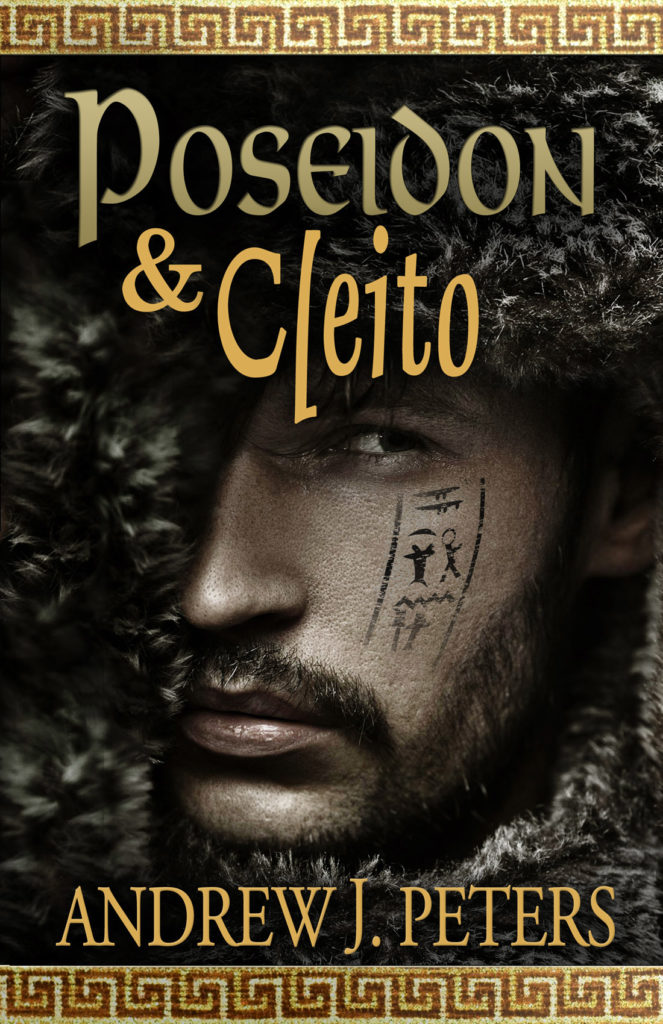
Anytime I come across a new title based on ancient Greek myth or history, I am liable to add it to my reading queue. When I heard about Madeline Miller’s SONG OF ACHILLES, which revisits the Trojan War from the perspective of Achilles’ male lover Patroclus, the book went to the top of my list.
SONG OF ACHILLES did not disappoint.
Miller imagines Patroclus as an awkward, lonely boy who is alienated from his curmudgeonly father. Patroclus brings disgrace on his family when he shoves the bullying son of a wealthy countryman, and accidentally kills the boy. His father’s solution is to send Patroclus off to a faraway kingdom that is the home of Achilles, a half god, half mortal prince, Aristos Achaion—the best of the Greeks. Despite his father’s banishment, that’s where Patroclus’ life truly begins.
Out of all of the young, famed prince’s boyhood admirers, Achilles chooses Patroclus as his favorite companion. A scene where Achilles juggles figs for his entourage’s amusement, and tosses a fruit to Patroclus, launches a compellingly romantic story.
It’s truly one of the very best love stories I’ve ever read.
Miller’s style is earthy and visceral. She gorgeously depicts the sights, sensations and smells of young love. On Patroclus’ sensual awakening:
“I kissed his neck, the span of his chest, and tasted the salt. He seemed to swell beneath my touch, to ripen. He smelled like almonds and earth. He pressed against me, crushing my lips to wine.”
While the setting is many centuries removed from modern day, I found the portrayal of blossoming teen romance to be spot on and timeless. The boys’ feelings for one another tentatively unravel, but once they do, the realization is transcendent, their declaration scarcely spoken but felt with greater certainty than anything they’ve known.
Miller perhaps take some liberties for the time period by positioning Patroclus and Achilles’ coupling as an unqualified love affair. They’re the same age, which would be unusual for a same sex relationship, at least one that perseveres beyond adolescence.
But in that, I found it to be a refreshingly angst-free gay relationship. Neither one of the boys struggles with uncertainty and shame. The barriers that stand between the two young men are external.
There’s Achilles’ goddess mother Thetis, for whom no man or woman would be good enough for her son; and the expectations of the day for young nobles: politically-bartered heterosexual marriage and the siring of male heirs.
Achilles disentangles himself from his bride-to-be by telling her father that Patroclus is his “husband.” It’s a great moment that subverts the hetero norm in a delightfully profound way. If Achilles considers Patroclus to be his husband, does that mean he sees himself as Patroclus’ wife? Could both young men be considered both husband and wife to each other?
I love stories that explore non-conventional sexuality constructs, and one of my only qualms with SONG OF ACHILLES is that the latter third of the book didn’t quite realize the unusual, egalitarian partnership between the men. When Achilles and Patroclus travel to Troy, and it comes time to fight, the hallmark of “manhood,” Patroclus timidly strays away from battle, and takes up the role of a medic’s assistant. He’s been trained for combat just like Achilles, and the Greek army needs all the warriors they can spare, so it didn’t make sense to me. Nor did it seem in line with Patroclus who had been brave enough to fight off bullies, not to mention to spar with Achilles during their training.
Notwithstanding that little glitch in characterization, Miller achieves a highly satisfying story rich in setting and emotionality. There are many of the characters and sub-plots from the Iliad in the background–Helen, Hektor, Odysseus, the fulfillment of Achilles’ prophecy–but essentially it’s a story about everlasting love.


